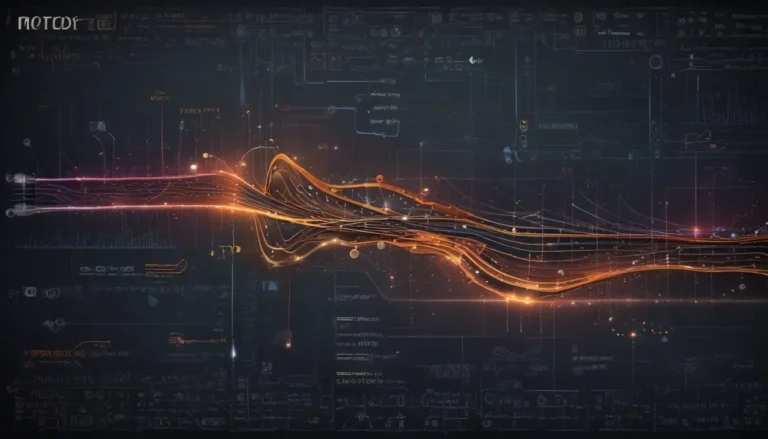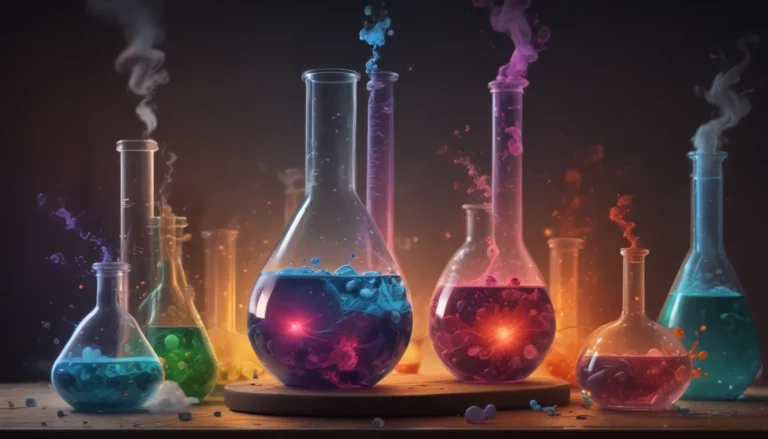A Note About Images: The images used in our articles are for illustration purposes only and may not exactly match the content. They are meant to engage readers, but the text should be relied upon for accurate information.
Welcome to the mesmerizing world of zero-order reactions, where the intricacies of chemical kinetics come alive with a constant rate that defies the norms of concentration-dependent reactions. Delving into the realm of zero-order reactions offers a unique perspective on the complexities of chemical processes, unveiling a plethora of intriguing facts that will expand your knowledge and spark your curiosity.
Understanding Zero-Order Reactions
Zero-order reactions stand out as a captivating phenomenon in the realm of chemistry, where the rate of reaction remains constant regardless of changes in reactant concentrations. Unlike traditional reactions, zero-order reactions defy the proportional relationship between reactant concentrations and reaction rates, adding a layer of complexity that challenges researchers to unravel their mysterious mechanisms.
Unraveling the Mysteries
Zero-order reactions often involve intricate mechanisms and multiple steps, making them a tantalizing puzzle for scientists to solve. The complexity of these reactions adds depth to the understanding of chemical kinetics, inspiring researchers to explore new avenues for discovery and innovation.
Relevance in Real Life
The concept of zero-order reactions finds practical applications in various fields, from enzymatic reactions to drug metabolism and controlled-release formulations. The independence of zero-order reactions from concentration changes ensures a consistent rate of reaction, making them valuable tools in designing controlled-release medications and optimizing reaction conditions for specific outcomes.
Factors Influencing Zero-Order Reactions
While the concentration of reactants has no impact on the rate of a zero-order reaction, factors such as temperature, catalysts, and surface area still play a significant role in influencing the speed of the reaction. Understanding these variables is essential for engineers seeking to design processes that require precise control over reaction rates.
Decoding the Rate Law Expression
The rate law expression for a zero-order reaction simplifies to Rate = k, emphasizing the independence of the reaction rate from reactant concentrations. This equation provides a foundational understanding of zero-order reactions and highlights their unique characteristics compared to other reaction types.
Exploring Practical Implications
Studying zero-order reactions offers insights into optimizing reaction conditions, designing drug dosage forms, and understanding the lifetimes of substances under specific circumstances. The non-linear concentration-time relationship of zero-order reactions adds a layer of complexity that challenges scientists to develop accurate models for analysis and prediction.
A Glimpse into Zero-Order Decay
Zero-order decay, akin to zero-order reactions, involves the decay of a substance at a constant rate over time regardless of the initial quantity. This concept is commonly observed in processes like radioactive decay, providing a valuable tool for researchers studying complex reaction kinetics.
Embracing Experimentation
Understanding zero-order reactions requires meticulous experimental planning, with techniques such as continuous flow reactors, enzyme kinetics analysis, and isothermal conditions facilitating accurate data collection and analysis. Identifying the rate-determining steps in zero-order reactions is crucial for unraveling the complex kinetics involved in these reactions.
Embracing the Unconventional
Zero-order reactions, often viewed as unconventional and intriguing due to their departure from rate-concentration relationships, present an exciting realm of exploration for researchers. By venturing into this lesser-known domain of reaction kinetics, scientists can uncover new avenues for scientific discovery and innovation.
FAQs: Unveiling the Mysteries of Zero-Order Reactions
Q: What is a zero-order reaction?
A: A zero-order reaction is a chemical reaction where the rate remains constant and is independent of reactant concentrations.
Q: How can zero-order reactions be identified?
A: Zero-order reactions can be identified by plotting reactant concentrations against time, yielding a linear graph with a constant slope.
Q: What are some real-life examples of zero-order reactions?
A: Examples include the decomposition of hydrogen peroxide, drug release from controlled-release systems, and alcohol degradation in the human body.
Q: What are the implications of zero-order reactions in drug delivery?
A: Zero-order reactions are essential for designing controlled-release medications that ensure a constant rate of drug release over a specific period of time.
Q: Can zero-order reactions be reversed?
A: Zero-order reactions are typically irreversible, requiring changes in reaction conditions or additional reagents to reverse the process.
Embracing the Enigmatic World of Chemical Kinetics
Step into the captivating realm of chemical kinetics and unravel the mysteries of reaction rates, catalysis, and complex mechanisms. Explore the significance of rate law expressions in predicting and manipulating reaction rates, and discover the power of catalysis in revolutionizing chemical processes. Embark on a fascinating journey through the intricacies of chemical kinetics, expanding your knowledge beyond the boundaries of zero-order reactions.
Conclusion
In conclusion, zero-order reactions offer a fascinating glimpse into the dynamic world of chemical kinetics, defying conventional notions of concentration-dependent reactions. By delving into the unique properties and behaviors of zero-order reactions, we gain valuable insights into their practical applications and implications in various fields of study. Understanding the intricacies of zero-order reactions expands our knowledge of chemical reactions and paves the way for scientific discovery and engineering advancements.
Join Us on the Journey of Discovery
As we continue to explore the wonders of zero-order reactions and unravel the mysteries of chemical kinetics, we invite you to join us on this journey of discovery. Dive into the enigmatic realm of reaction rates and mechanisms, and expand your understanding of the dynamic nature of chemical processes. With each new revelation, we discover the underlying beauty and complexity of chemistry, guiding us towards a deeper appreciation of the wonders that lie within. Let’s embark on this journey together and unlock the secrets of the mesmerizing world of zero-order reactions.






